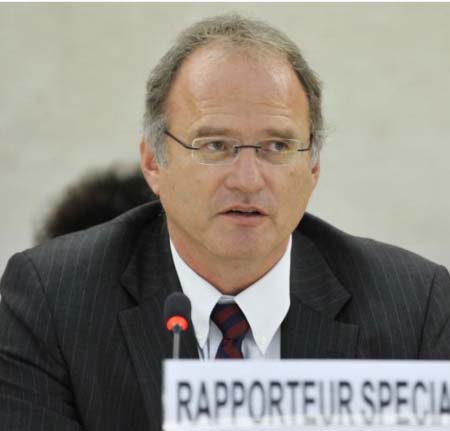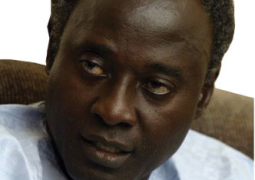
The initial visit of the special rapporteurs on extrajudicial, arbitrary executions; and on torture and other cruel, inhuman treatment, scheduled for August 2014, was annulled one week before the visit by the government, which proposed that the visit be delayed until next year.
However, according to a press release received Thursday from the UN Human Rights Office in Geneva, Switzerland, the Gambia government has now accepted the visit of the UN human rights special rapporteurs sooner than planned and has invited them to come.
Consequently, Christof Heyns, the special rapporteur on extrajudicial, summary or arbitrary executions, and Juan Mendez, the special rapporteur on torture and other cruel, inhuman or degrading treatment or punishment will visit The Gambia from 3 to 7 November, 2014.
In the statement from Geneva, Mr. Heyns said: “I will examine the current level of protection of the right to life in law and in practice in the country.
“An essential aspect of my visit will focus on the current situation of violence, in particular the level of unlawful killings and death threats by any actor, as well as the efforts to prevent them and ensure justice and accountability in such cases.”
The special rapporteur on extrajudicial executions will further look at the legal framework and existing practices in connection to the imposition of the death penalty, and assess its level of conformity with international law.
Mr Mendez, the rapporteur on torture, said: “During the mission, I will assess the situation and identify challenges regarding torture and other cruel, inhuman or degrading treatment or punishment in The Gambia.
“I will look into allegations of torture or other ill-treatment, the conditions of detention in all places where persons are deprived of their liberties, including the conditions of persons in death row.”
Mr Mendez will also examine the national legislation in relation to international law, and assess the government’s compliance with the obligation to investigate, prosecute and punish all acts of torture, provide access to legal assistance upon arrest, and guarantee redress and reparation to victims.
The two UN special rapporteurs said they look forward to assist the Gambia government in coping with some of the challenges it faces regarding these issues, and in finding solutions that uphold the rule of law, promote accountability for human rights violations and fulfill the right of reparation for victims.
During the five-day visit, the two UN special rapporteurs will meet with high-ranking officials, as well as various UN agencies, international and local non-governmental organizations, and civil society representatives in The Gambia, the statement from Geneva added.
The independent experts will also visit places of detention, including prisons, police stations, interrogation centres, juvenile and women’s facilities and psychiatric institutions.
Mr. Heyns and Mr. Méndez will present their final reports on the visit to The Gambia to the UN Human Rights Council in 2015.
They will hold a press conference on 7 November 2014 at 1:30 pmat the Ocean Bay Hotel in Bakau to share their preliminary findings with the media.


